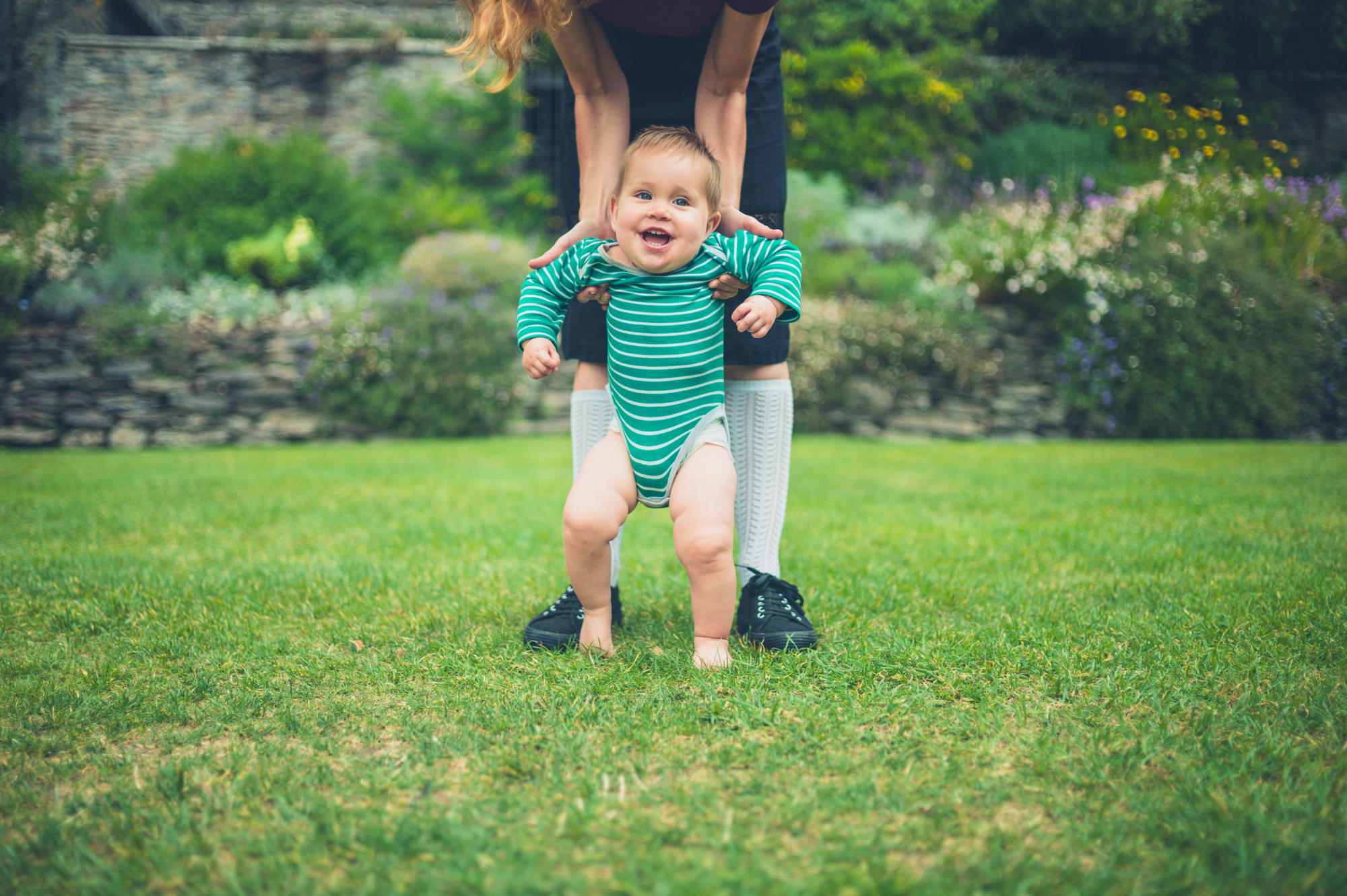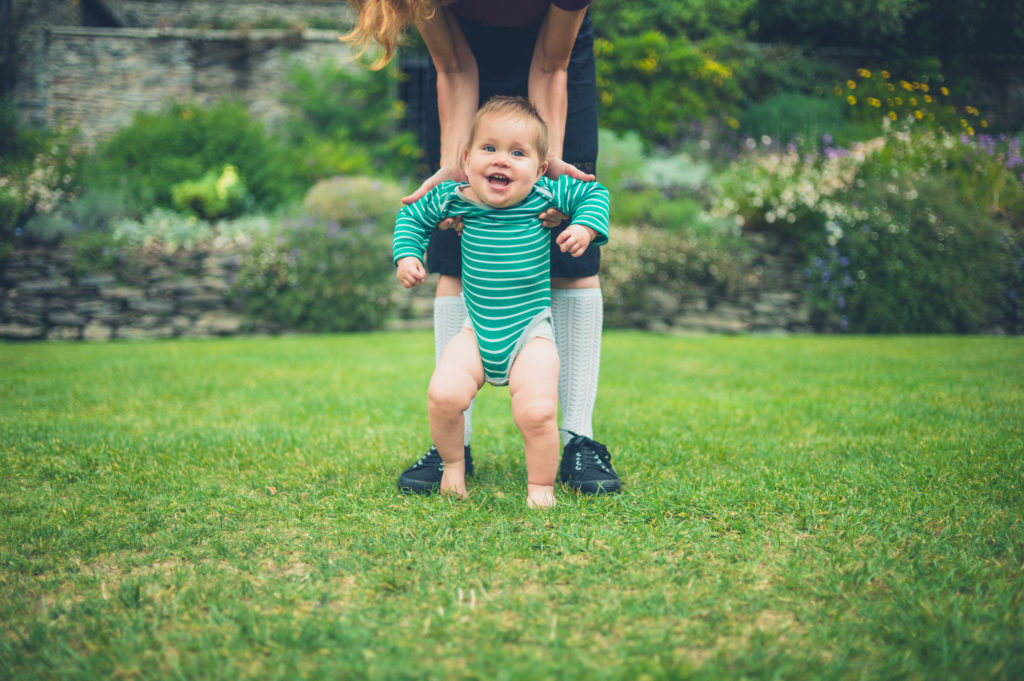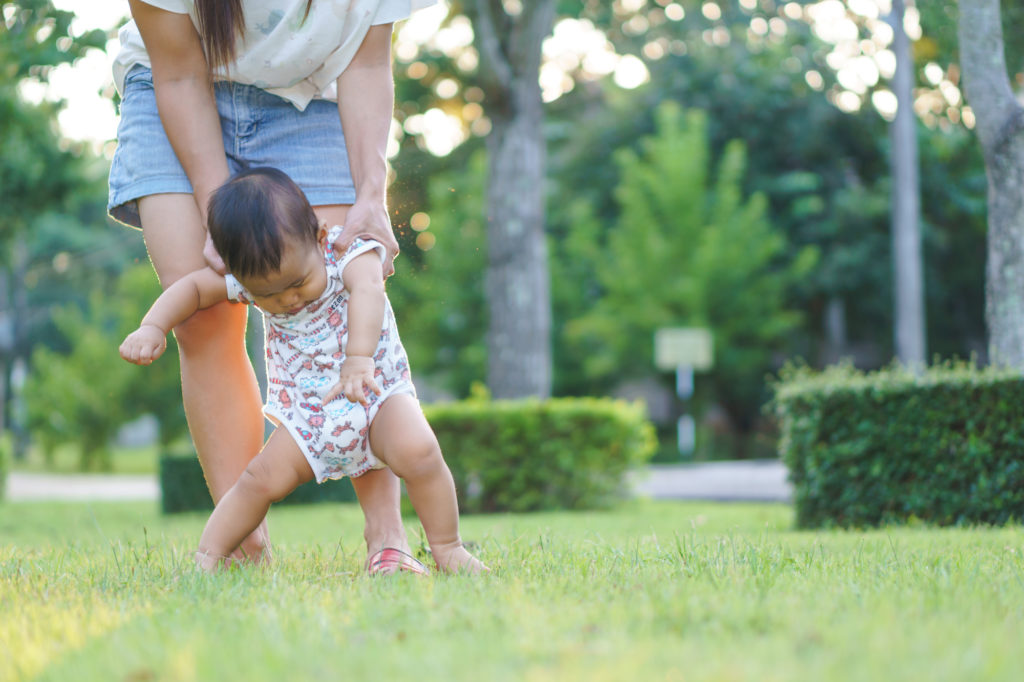Quais são as razões para andar tarde em bebês?
There are many reasons why a baby does not walk according to set developmental milestones. Generally, babies may start walking anywhere between the ages of 9-15 months, but in some instances, some babies walk earlier, and some babies walk later than this range.
Geralmente, se um bebê não está andando sozinho por 18 meses, uma avaliação adicional pode ser necessária para entender por que há um atraso e uma razão subjacente para esse atraso.
Caminhar é uma habilidade motora grosseira que envolve os grandes músculos das pernas. Normalmente, em termos de desenvolvimento infantil, será precedido por rolar, aprender a sentar-se independentemente, engatinhar, ficar em pé de forma independente e usar móveis ou outros adereços para passear pela sala.
Às vezes, a marcha tardia pode ocorrer após um atraso em outras áreas do desenvolvimento motor grosso do bebê. Pode seguir rastejando tarde, por exemplo. Não é incomum que os bebês deixem de engatinhar, por exemplo. Ainda assim, andar é uma habilidade motora grossa essencial, e atrasar em cumpri-la provavelmente despertará preocupação em pais e cuidadores se uma criança completou, mesmo que com um ligeiro atraso, seus outros marcos motores grosseiros importantes - pode não haver causa imediata para preocupação quando se trata de um caminhante atrasado.
Algumas das principais razões para andar tarde em bebês e crianças pequenas são:
Hereditary: there may be a link between parents who walked later and consequent delay in their own children’s walking. Some infants walk later, and often there are no underlying causes.
Personality: some infants are in no rush to get walking, and some are more cautious with taking risks needed to master independent walking. They may be content with taking their time and learning developmental steps in their own time. While not measurable as a reason, it is an anecdotal reason for late walking in some infants.
Environment: babies who may have suffered illness or long-term hospitalization at a young age may not have had the opportunities to move and practice their gross motor skills that aid walking. Infants in environments where they are not given the opportunities to move, play on the floor, and use their developing gross motor skills may also experience a delay in walking. It is important that infants are given opportunities to move and play and are not spending extended periods of time in carriers (stroller, baby chair) that limit their ability to move.
Prematurity: babies born early may meet all of their developmental milestones slower. Usually, and depending on the extent of prematurity, babies born early should be tracked against the milestones for their due date and not the date they were born.
A rare disease or genetic syndrome: sometimes a walking delay (combined with other gross motor delays) may be a rare disease sign or symptom. Examples of these include Barth syndrome, Rett syndrome, and Russell-Silver syndrome. If a rare disease is suspected, Análise genética may be recommended to determine the cause of gross motor delay in a child.
Underlying health or physical condition: hypotonia (low muscle tone) is a major cause of walking delay in infants. Hypotonia may also present with a rare disease, Williams’ syndrome as one example. Walking delay is also a sign of mild cerebral palsy.
Na maioria dos casos, o atraso na caminhada, sem atrasos em qualquer outra área do desenvolvimento do bebê, não causa preocupação. Alguns bebês precisam de mais estímulo e encorajamento para dominar a habilidade por si próprios.
If you have any concerns about your child’s development, including their walking skills, or indeed concerns about any of their gross motor skills, the first person to contact is your family doctor.









